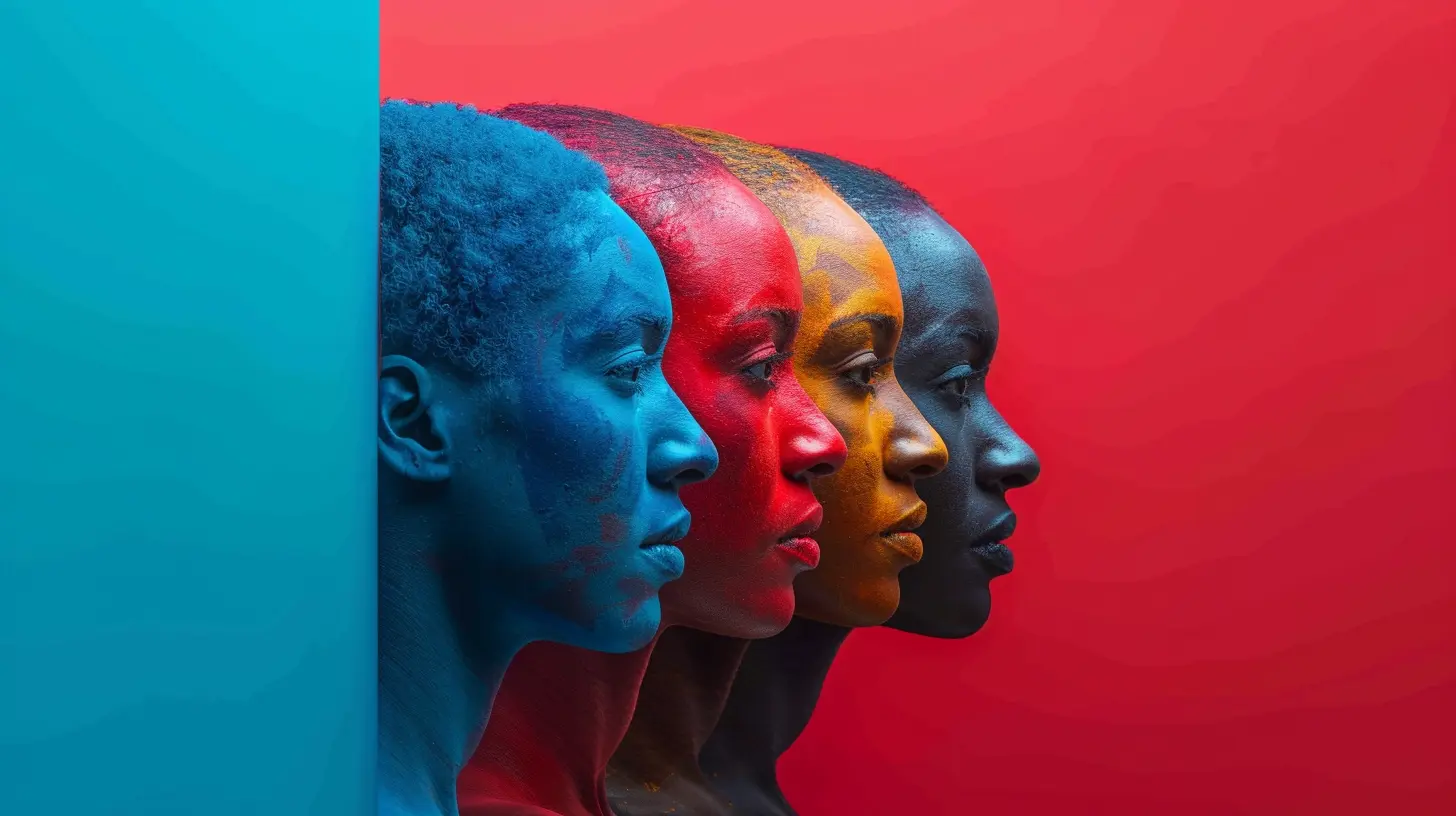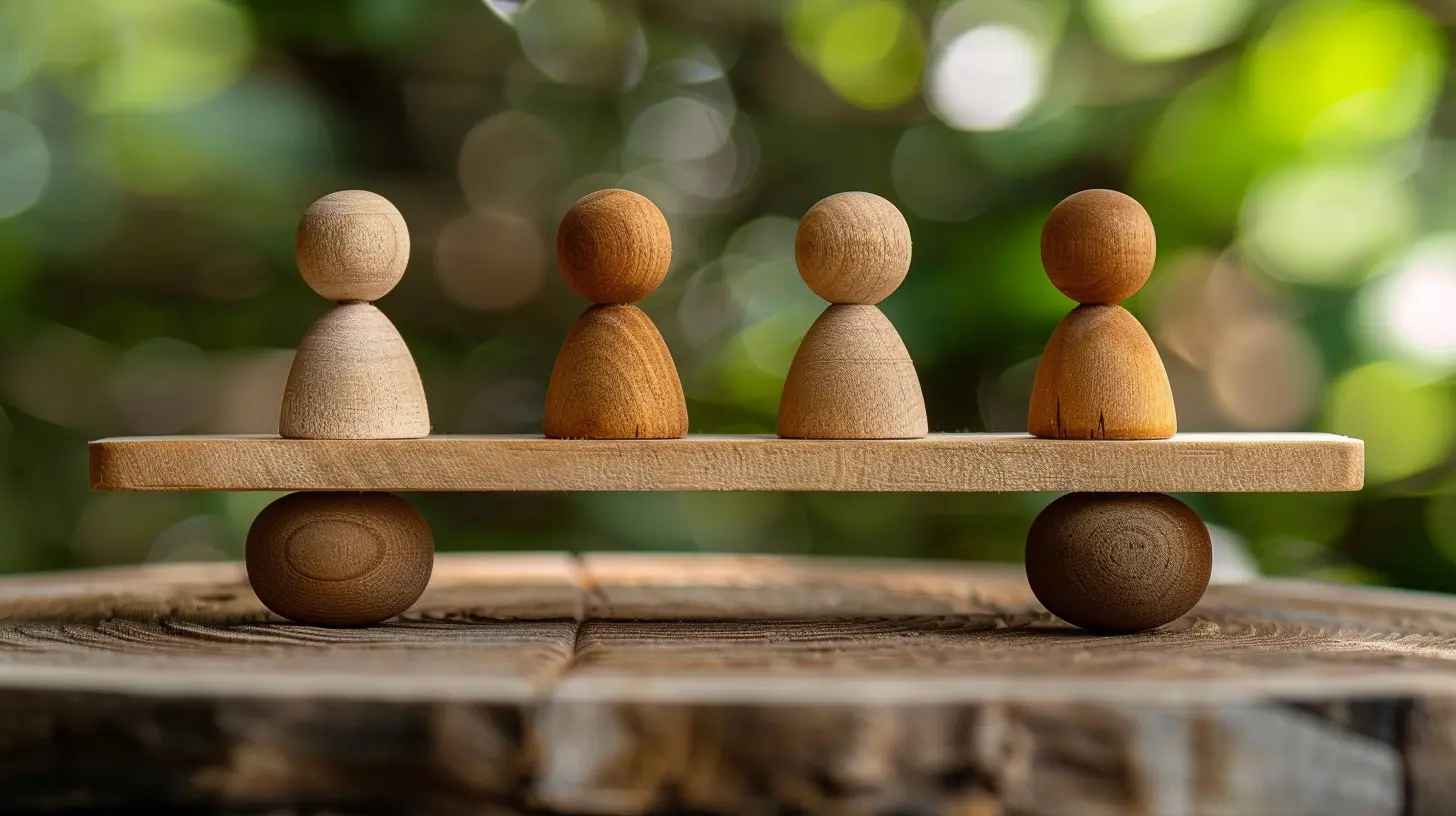The Psychology of Social Comparison: Why We Measure Ourselves Against Others
19 July 2025
Ever found yourself scrolling through Instagram, and suddenly, you feel a pang of jealousy? Maybe it’s that friend who just bought a new car or a celebrity flaunting a lavish vacation. Before you know it, you're stuck in a loop of self-doubt, wondering why your life doesn’t measure up. Don’t worry; you’re not alone.
We all compare ourselves to others—it’s human nature. In fact, this behavior has a name: social comparison. But why do we do it? And is it always a bad thing? Let’s dive into the psychology of social comparison and discover why we can’t help but measure ourselves against others.

What Is Social Comparison?
In simple terms, social comparison is the process where we evaluate ourselves by looking at others. Whether it’s our appearance, success, intelligence, or even happiness, we instinctively look to those around us to gauge our own standing. Social comparison theory, first introduced by psychologist Leon Festinger in 1954, suggests that people have an innate drive to assess their abilities and worth. And how do we do that? By comparing ourselves to others.It’s like being on a racetrack. You’re not just running for the sake of running; you’re glancing at the person in the lane next to you, wondering if you’re ahead or behind. In life, that “lane” could be anything—your career, your relationships, your appearance, or even your lifestyle.
But here’s the kicker: social comparison isn’t necessarily a bad thing. Sometimes, it can motivate us to improve. However, if we’re not careful, it can also lead us down a spiral of negativity and self-criticism.
Two Types of Social Comparison: Upward and Downward
Social comparison comes in two main flavors: upward and downward.1. Upward Comparison: This occurs when we compare ourselves to someone we perceive as better than us in some way. Think of the times you’ve looked at a coworker who seems to have it all together or a friend who’s always a step ahead. Upward comparison can be inspiring—pushing us to strive for more. But it can also lead to feelings of inadequacy if we constantly feel like we’re falling short.
2. Downward Comparison: On the flip side, downward comparison happens when we compare ourselves to those we perceive as worse off. Ever heard the saying, “At least I’m not as bad as that guy”? That’s downward comparison in action. It can offer a temporary boost to our self-esteem, but it might also make us complacent if we’re only using it to feel superior.
So, while both types of comparison have their pros and cons, the key is how you use them. Are they pushing you to grow, or are they holding you back?

Why Do We Compare Ourselves to Others?
You might be wondering, "Why do we even bother with this whole comparison game?" Well, it turns out our brains are wired for it. Here are a few reasons why:1. Evolutionary Survival
Back in the caveman days, survival wasn’t guaranteed. People had to compare themselves to others in their tribe to know where they stood—whether they were strong enough, fast enough, or resourceful enough to survive. This instinct has carried over into modern life, even though we’re no longer running from saber-toothed tigers.Today, we compare ourselves to ensure we’re keeping up with societal standards. Are we successful enough? Attractive enough? Popular enough? It’s a way to fit in and ensure our place in the social hierarchy.
2. Social Identity
We also compare ourselves to help build our identity. Who am I? Where do I fit in? These questions often get answered by looking at how we stack up against others. For instance, if you’re surrounded by high achievers, you might start to see yourself as ambitious—or, conversely, you might feel like you’ll never measure up. Either way, comparison plays a role in shaping how we see ourselves.3. Self-Evaluation
Let’s face it: we’re not great at evaluating ourselves in isolation. Think about it. If you were the only person on the planet, how would you know if you were smart, funny, or successful? Social comparison gives us a benchmark. It’s like having a mirror that reflects back not just how we see ourselves, but how we think we measure up to others.
The Dark Side of Social Comparison
While social comparison is natural, it’s not always healthy. In fact, it can take a serious toll on our mental health. Here’s why:1. The Trap of Perfectionism
When you constantly compare yourself to others, you may start chasing an unrealistic standard of perfection. Social media, in particular, doesn’t help. It’s easy to forget that what we see online is often a curated version of reality. No one posts about their bad hair days or moments of insecurity. Yet, we compare our real, messy lives to someone else’s highlight reel.This can lead to a constant feeling of not being “good enough.” You might find yourself setting unattainable goals, only to feel disappointed when you inevitably fall short. Over time, this can foster a sense of inadequacy and low self-esteem.
2. Increased Anxiety and Depression
Studies have shown that people who frequently engage in upward social comparison (especially on social media) are more likely to experience anxiety and depression. Why? Because they’re constantly bombarded with images of others who seem to have it all—whether it’s the perfect body, the ideal relationship, or the dream job. The more you compare, the worse you feel about your own life.In extreme cases, this can lead to something known as “social comparison disorder,” where the act of comparing becomes obsessive and starts to interfere with daily functioning.
3. Jealousy and Resentment
It’s not just about feeling inadequate. Constant comparison can also breed jealousy and resentment. If you’re always focused on what others have, it can be hard to appreciate your own accomplishments. This can strain relationships and leave you feeling bitter.4. Happiness Deficit
The more time you spend comparing, the less time you have to enjoy what’s right in front of you. When you measure your success, happiness, or worth based on others, you overlook the things that actually make you happy. It’s like being so focused on the horizon that you miss the flowers blooming right at your feet.
How to Break Free from the Comparison Trap
The good news? You don’t have to be stuck in the comparison cycle. Here are some tips to help you break free:1. Practice Gratitude
Gratitude is the antidote to comparison. When you focus on what you have rather than what you lack, you shift your mindset from scarcity to abundance. Try keeping a gratitude journal, where you write down three things you’re thankful for each day. Over time, this practice can help you appreciate your own life, without constantly comparing it to others’.2. Limit Social Media Use
Social media is a breeding ground for comparison. If you find yourself feeling down after scrolling through Instagram or Facebook, it might be time for a digital detox. Limit your time on these platforms or unfollow accounts that trigger feelings of inadequacy.3. Celebrate Your Wins
Instead of focusing on what others are doing, take time to celebrate your own accomplishments. Did you nail that presentation at work? Cook a delicious meal? Complete a workout? Give yourself credit where it’s due.4. Surround Yourself with Positive Influences
Surround yourself with people who uplift and inspire you. When you’re in a supportive environment, you’re less likely to fall into the comparison trap. Plus, having friends who celebrate your successes can remind you that there’s no need to compete.5. Focus on Personal Growth
Instead of comparing yourself to others, compare yourself to who you were yesterday. Personal growth is a journey, and it’s more fulfilling when you focus on your progress rather than someone else’s achievements.Conclusion
Social comparison is a double-edged sword. On the one hand, it can motivate us to improve and strive for more. On the other hand, it can leave us feeling inadequate, anxious, and unhappy if we’re constantly measuring ourselves against others. The key is to recognize when comparison is helpful and when it’s harmful.So the next time you catch yourself slipping into the comparison trap, take a step back. Remind yourself that everyone’s journey is different, and that your worth isn’t defined by how you stack up against others. After all, life isn’t a race—it’s a marathon, and your only competitor is the person you were yesterday.
all images in this post were generated using AI tools
Category:
Social PsychologyAuthor:

Gloria McVicar
Discussion
rate this article
1 comments
Isolde Rios
Great article! Understanding social comparison is crucial for personal growth. It’s empowering to realize that our journey is unique and that measuring ourselves against others can often lead to unnecessary stress. Let’s focus on our individual paths and celebrate our progress!
August 12, 2025 at 3:00 AM

Gloria McVicar
Thank you for your thoughtful comment! I completely agree—embracing our unique journeys is key to personal growth. Celebrating our own progress can be incredibly empowering!


